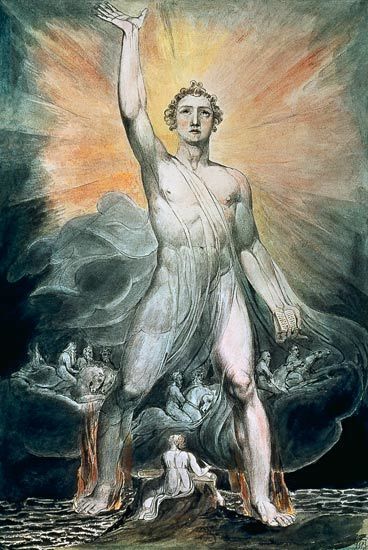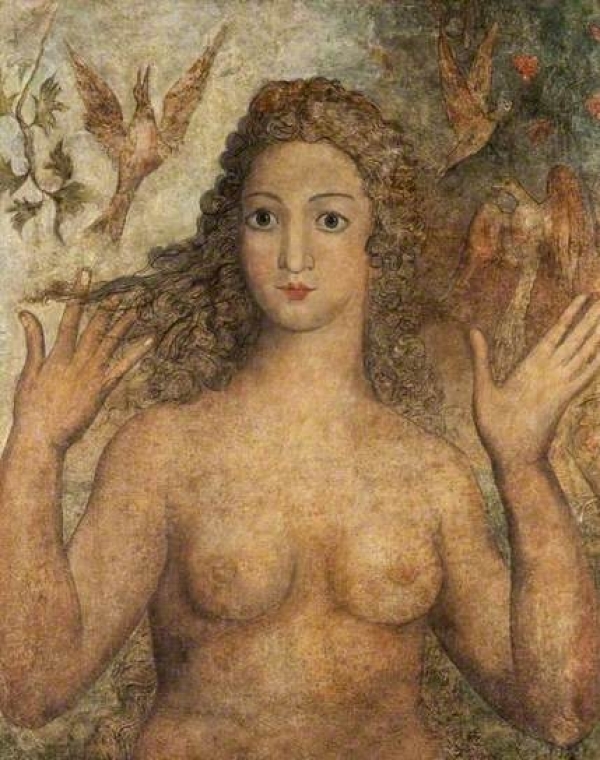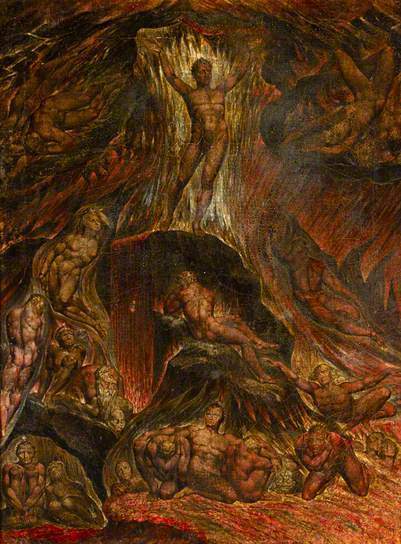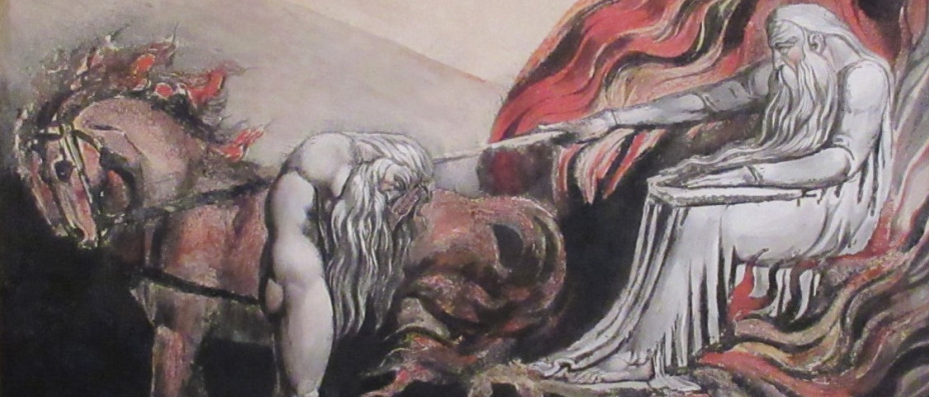William Blake: Visions of Heaven and Hell
Posted on 10th March 2021
Some consider him England’s greatest ever artist, but it is a viewpoint not widely shared and opinions remain as divided today as they were conflicted in his own lifetime. He was too perhaps much of a maverick to ever be thought great he could only ever be a genius.
William Blake was born in Soho on 28 November 1757, the son of a hosier, a profession that could provide comfort if not wealth but it was enough to facilitate their son’s love of art and books.

He had little in the way of any formal education however, and like many autodidacts with an inquisitive mind the views he developed were often contrary to the accepted norms of the day.
In 1772, aged fifteen he was apprenticed to the engraver James Basire where he was sent to sketch London’s many Gothic Churches spending endless not always happy hours within the confines of Westminster Abbey and other such places of not so quiet contemplation.
Having completed his apprenticeship as an engraver in 1779, he proceeded to study fine art at the Royal Academy and soon after opened a printing shop which brought him into contact with many of the leading radicals in the city.
In 1782, he wed Catherine Boucher, the illiterate daughter of a market gardener on the rebound from an earlier failed relationship which despite its unpromising beginnings and his own unorthodox views on the institution of marriage which he often referred to as a form of slavery with unnatural monogamy at its core was to be a long and happy one.
The following year he published his first book of poetry.
Blake is often thought of as a of radical, but his politics were never coherent and he was to participate in the anti-Catholic Gordon Riots before later embracing and then rejecting the ideals of the French Revolution which he decided had simply been the replacement of one, oppressive orthodoxy for another.
In truth, he always opposed the abuse of power and it seemed to him that those who wielded it were invariably corrupted by it regardless of any fine words or any professed ideals.
The one constant in his life was the Bible and it was both his inspiration and his guiding star, but its interpretation remained his own and many people considered his work profane, even blasphemous.
He had little time for orthodox religion believing it negated passion and removed joy from the world. God, he said, had provided mankind with a passion that was to be expressed, even indulged: “Men are admitted into Heaven not because they have curbed and governed the passions or have no passions but because they have cultivated its understanding”.
He claimed to have had visions all his life and to be in direct communication with God to have visited Heaven and to be always accompanied by angels but he also feared that Satan walked the Earth. So, he took instruction from Angels and sought comfort in conversations with the dead: “I know that our deceased friends are more really with us than they were apparent in our mortal part”.
Many of his contemporaries, among them the poet William Wordsworth, merely thought him mad.
Though Blake was not renowned for his verse during his lifetime but rather for his engravings and the beauty of his many illuminated manuscripts it is for a poem untitled but known to us as Jerusalem that he is best remembered today which since it was put to music by Sir Hubert Parry in 1915 has become the unofficial National anthem of England:
Jerusalem
And did those feet in ancient time
Walk upon England’s mountains green?
And was the holy Lamb of God
On England’s pleasant pastures seen?
And did the Countenance Divine
Shine forth upon our clouded hills?
And was Jerusalem builded here
Among these dark Satanic Mills?
Bring me my bows of burning gold:
Bring me my arrows of desire:
Bring me my spear: O cloud unfold!
Bring me my chariot of fire.
I will not cease from Mental Fight
Nor shall my sword sleep in my hand
Till we have built Jerusalem
In England’s green and pleasant land.
Blake is often associated now with the Romantic Poets but unlike Byron, Shelley and the others his work has a dark fatalism which like his art rich in symbolism and Biblical allegory has an intensity of anguish and desire that is often uncomfortable but can rarely be ignored.
William Blake who didn’t dream but had visions and nightmares died on 12 August 1827, in the presence of his wife singing hymns late into the night and accompanied it is said by a chorus of angels.








Share this post:





